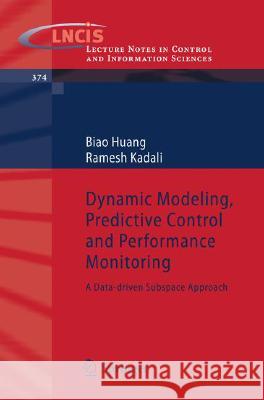Dynamic Modeling, Predictive Control and Performance Monitoring: A Data-driven Subspace Approach » książka
topmenu
Dynamic Modeling, Predictive Control and Performance Monitoring: A Data-driven Subspace Approach
ISBN-13: 9781848002326 / Angielski / Miękka / 2008 / 242 str.
A typical design procedure for model predictive control or control performance monitoring consists of:
- identification of a parametric or nonparametric model;
- derivation of the output predictor from the model;
- design of the control law or calculation of performance indices according to the predictor.











